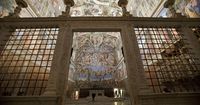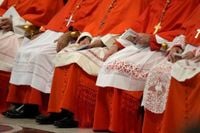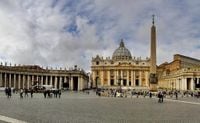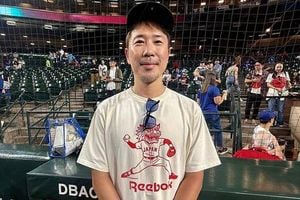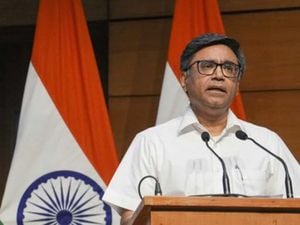As the world watches, the Vatican is set to begin a historic conclave on Wednesday, May 7, 2025, where 133 cardinals will gather in the Sistine Chapel to elect the successor to Pope Francis, who passed away on April 21 at the age of 88. This conclave marks a significant moment in the Catholic Church, expected to be the most diverse and populous in history, with cardinals from 71 countries participating.
The conclave will commence at 4:30 PM local time, following a morning mass known as "Pro Eligendo Pontifice," presided over by Cardinal Giovanni Battista Re, the Dean of the College of Cardinals. This mass is a traditional invocation for divine guidance in the selection of the new pope.
In a remarkable twist, this conclave is characterized not only by its size but also by the palpable divisions among the cardinals. Many are split between those who wish to continue the progressive reforms initiated by Pope Francis and those who advocate for a return to more traditional values. The absence of a clear frontrunner adds to the uncertainty surrounding the election.
The voting process will unfold over several days, with four ballots conducted each day—two in the morning and two in the afternoon. To be elected, a candidate must secure at least 89 votes, which constitutes two-thirds of the total. If no consensus is reached after three days, the cardinals will take a one-day pause for reflection.
As the cardinals prepare for their secretive deliberations, they will be cut off from the outside world. All mobile phone signals in the Vatican will be deactivated to prevent any outside influence or communication. This measure underscores the gravity of the conclave, where the future direction of the Church hangs in the balance.
The first smoke signal, or "fumata," is anticipated later in the evening between 6:00 PM and 7:00 PM. Traditionally, black smoke indicates that no decision has been reached, while white smoke signals the election of a new pope. The latter is accompanied by the ringing of the six bells of St. Peter's Basilica, marking a moment of great significance for the Catholic faithful worldwide.
Among the names frequently mentioned as potential successors are Pietro Parolin, the current Secretary of State; Matteo Zuppi, the Archbishop of Bologna; Pierbattista Pizzaballa, the Latin Patriarch of Jerusalem; Luis Antonio Tagle from the Philippines; Robert Francis Prevost from the United States; and Peter Erdö, the Archbishop of Esztergom-Budapest. Each of these candidates embodies different aspects of the ongoing dialogue within the Church.
The atmosphere leading up to the conclave has been charged with anticipation and tension. Just days before the conclave, the cardinals expressed their hopes for a leader who can unite the Church and address pressing global issues, including peace in regions like Ukraine and the Middle East. In a recent statement, the cardinals called for a ceasefire and negotiations for lasting peace, reflecting the Church's commitment to social justice.
As the cardinals enter the Sistine Chapel, they will take an oath of secrecy, promising to maintain confidentiality about the proceedings. This solemn commitment is taken under the threat of excommunication, emphasizing the seriousness of their task. The conclave is not merely a political maneuver; it is a deeply spiritual process that aims to discern the will of God for the Church's future.
Historically, the conclave has been a complex interplay of politics, theology, and personal relationships. The cardinals will engage in discussions and negotiations, forming alliances as they seek to identify a candidate who can garner the necessary support. The dynamics within the conclave are influenced by the legacy of Pope Francis, who appointed a significant number of the current electors and whose vision for a more inclusive Church continues to resonate.
However, there are differing perspectives on how closely the next pope should align with Francis's reforms. Some cardinals advocate for a continuation of his progressive agenda, while others argue for a more conservative approach, reflecting the diverse views within the Church. The outcome of this conclave will likely shape the Church's identity in the coming years.
As the cardinals prepare to cast their votes, the world awaits the outcome with bated breath. The new pope, once elected, will face numerous challenges, including addressing the issues of clerical abuse, the Church's role in contemporary society, and the need for greater inclusivity. The decisions made in the coming days will have lasting implications for the Catholic Church and its 1.4 billion followers around the globe.
In summary, the conclave set to begin on May 7, 2025, represents a pivotal moment in the history of the Catholic Church. With a diverse group of cardinals and significant divisions in ideology, the election of the new pope will be closely watched. As the smoke signals rise from the Sistine Chapel, the hopes and prayers of millions will accompany the electors in their solemn task.
